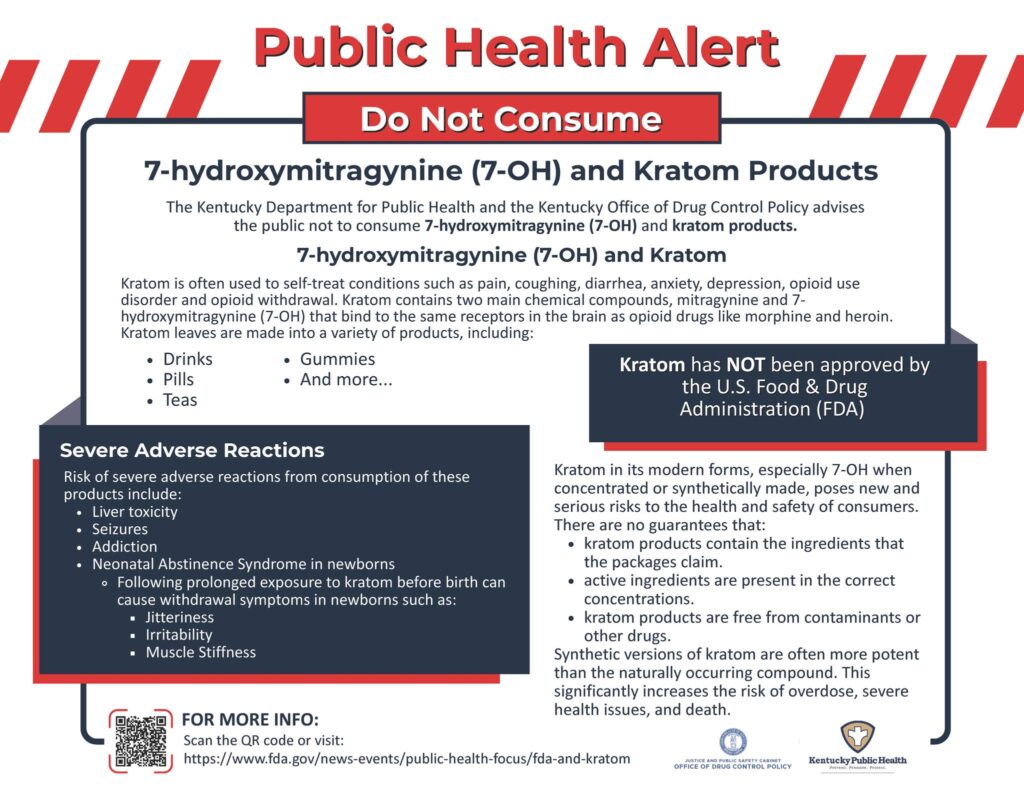Kentucky public health officials issue health alert against kratom products

By Melissa Patrick
Kentucky Health News
The Kentucky Department for Public Health and the Kentucky Office of Drug Control Policy have issued a health alert, advising the public not to consume kratom or one of its main chemical components, 7-hydroxymitragynine (7-OH), due to the risk of severe adverse reactions.
Public health officials warn that the use of kratom or 7-OH can lead to liver toxicity, seizures, addiction and neonatal abstinence syndrome in newborns.
Kratom is a tropical tree that is native to Southeast Asia. It can be made into a variety of products, such as drinks, teas, gummies, pills and more. It is often used to self-treat conditions such as pain, coughing, diarrhea, anxiety, depression, opioid use disorder and opioid withdrawal.
Kratom has not been approved by the U.S. Food and Drug Administration, so it is not lawfully marketed in the U.S. as a drug product, a dietary supplement or a food additive in conventional food.
In Kentucky, kratom is legal, but is regulated. The law to regulate the product limits its sale to people 21 years and older and provides guidelines for safety standards and labeling.
A bill to amend the state’s 2024 kratom law was introduced during the 2025 legislative session but failed to get out of committee. It would have addressed the potency and potential risks associated with higher concentrations of kratom, such as 7-OH, by not allowing it to be marketed as a kratom product.
An estimated 1.7 million Americans aged 12 and older used kratom in 2021, according to the Substance Abuse and Mental Health Services Administration’s National Survey on Drug Use and Health.
For more information, visit the FDA website.